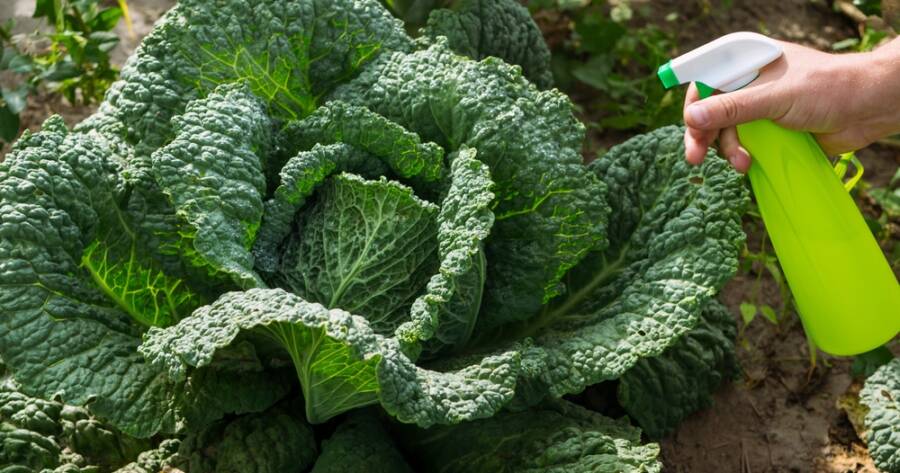Nothing is more frustrating than watching your healthy garden get chewed up by unwanted insects or animals. While chemical pesticides can offer quick fixes, they often come with environmental risks and can harm helpful bugs, pets, or even people. Fortunately, there are several natural solutions that protect your plants while keeping your garden ecosystem safe and healthy. Tried-and-true methods use the power of nature to fight back—without relying on harsh or synthetic chemicals.
1. Companion Planting: Nature’s Built-In Pest Repellent
Companion planting is a smart and sustainable way to keep pests out of your garden. By placing certain plants together, you can naturally repel bugs and attract beneficial insects that help with pest control.
For example, marigolds release a scent that discourages aphids, whiteflies, and nematodes. Basil and chives help keep flies and mosquitoes at bay, while nasturtiums attract aphids away from your vegetables, acting as a sacrificial plant.
Planting onions or garlic near leafy greens can deter slugs and cabbage loopers. At the same time, flowering herbs like dill or fennel attract ladybugs and parasitic wasps, which feed on garden pests without harming your plants.
The key is to mix and match plants in a way that balances your garden’s needs—repelling harmful bugs while attracting beneficial ones that naturally restore order.
2. Neem Oil: A Safe and Effective Organic Spray
Neem oil is extracted from the seeds of the neem tree and has been used for centuries as a natural pesticide. It’s especially effective against soft-bodied insects like aphids, spider mites, and whiteflies. When sprayed on leaves, neem oil coats the insects and interferes with their ability to eat and reproduce.
Unlike harsh chemical sprays, neem oil breaks down quickly in sunlight and doesn’t harm pollinators like bees or butterflies when used properly. It’s also safe to use around pets and edible plants.
Apply neem oil in the early morning or late evening to avoid burning leaves in direct sunlight. For best results, repeat the application every week or after a heavy rain, and always follow the dilution instructions on the label.
3. Diatomaceous Earth: Physical Protection Against Crawling Insects
Diatomaceous earth (DE) is a fine, powdery substance made from fossilized algae. Though harmless to humans and pets, it’s deadly to many soft-bodied pests, including slugs, beetles, and ants.
DE works by physically damaging an insect’s outer shell, causing it to dry out and die. Sprinkle it in a thin layer around the base of your plants, especially where you notice pest activity. You can also dust it on leaves, but avoid applying it to flowers to protect pollinators.
One thing to note: DE loses effectiveness when wet, so it’s best applied during dry weather and reapplied after rain or watering.
4. Row Covers and Physical Barriers
Sometimes the best way to keep pests out is to create a barrier they can’t cross. Row covers, mesh screens, and garden nets are all effective ways to protect plants from flying insects, birds, and rabbits—without interfering with light or airflow.
Lightweight row covers are great for seedlings or young vegetable plants and can help prevent cabbage moths, flea beetles, and squash bugs from laying eggs on leaves.
To deter digging pests like squirrels or raccoons, use garden fencing or buried mesh around vulnerable crops. You can also cover the soil with mulch or straw, which helps deter egg-laying insects while conserving moisture.
These physical solutions are non-toxic and reusable, making them a good long-term investment for pest management.
5. Homemade Garlic and Chili Spray
For a DIY approach, a simple spray made with garlic and chili peppers can deter many common garden pests. These natural ingredients have strong scents and irritants that repel bugs without harming your plants.
To make your own, blend a few garlic cloves and one or two hot chili peppers with water. Strain the mixture, add a few drops of mild dish soap (to help it stick to leaves), and spray it onto your plants every few days.
While this spray may not kill pests, it makes your plants less appealing to them. It’s especially useful for keeping away aphids, caterpillars, and even deer.
Always test a small area first to ensure the spray doesn’t damage tender leaves.
Let Nature Help You Win the Pest Battle
Protecting your garden doesn’t have to mean reaching for synthetic chemicals. With a few strategic choices—from companion planting to neem oil and physical barriers—you can build a healthier, more self-sustaining environment where plants thrive and pests are kept in check.
Natural methods may take a bit more planning, but they reward you with safer soil, healthier crops, and peace of mind. By working with nature instead of against it, your garden becomes stronger—and more enjoyable—all season long.

